A pink grasshopper was discovered one day by one of photographer Roeselien Raimond’s photography friends. “To be very honest, his special find made me a little bit jealous. After all, it is just about the closest thing to a pink elephant!” says Raimond. Raimond also understood how unlikely such a thing truly is and how stupid it would be to go in search of one. There is a higher likelihood of winning the lottery.
“With literally thousands of green brown brothers jumping around, I felt like I was looking for a needle in a haystack.” When she was about to quit, she caught sight of something pink-colored! She had personally located a Pink Grasshopper! “He wasn’t very cooperative and despite his striking color he managed to escape within no time. But boy, was that cool!” states Raimond.
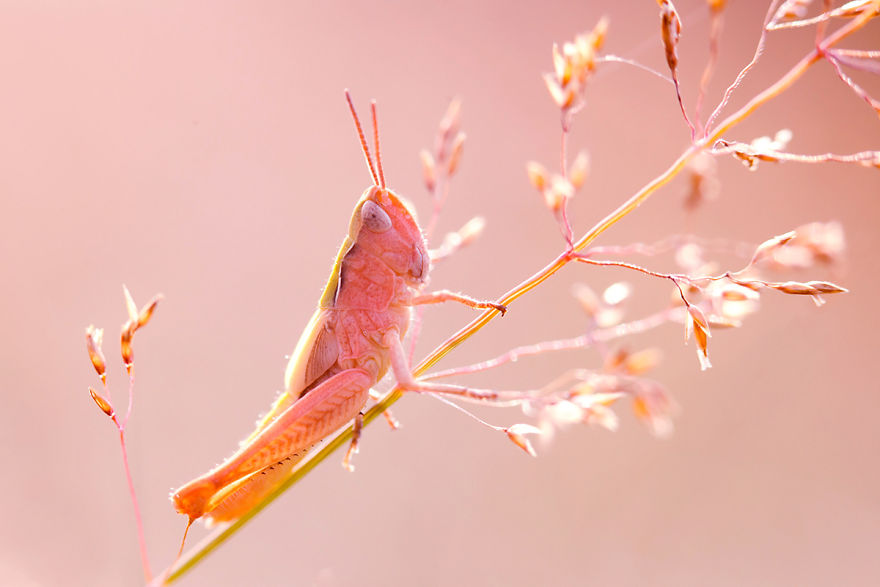
There isn’t much known about pink grasshoppers other than the likelihood that the color variation is brought on by a deficiency of the black pigment (eumelanin) on the one hand, and surplus production of the red pigment on the other (phaeomelanin).
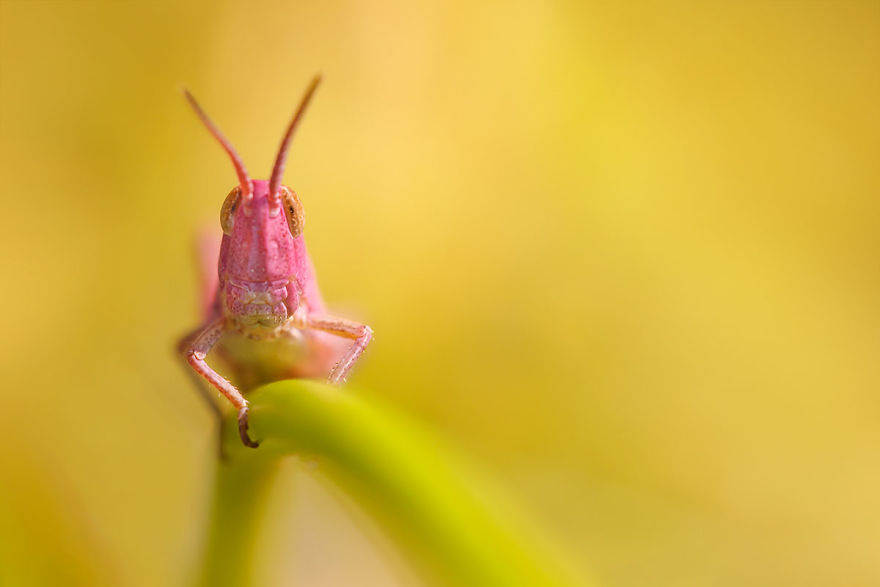
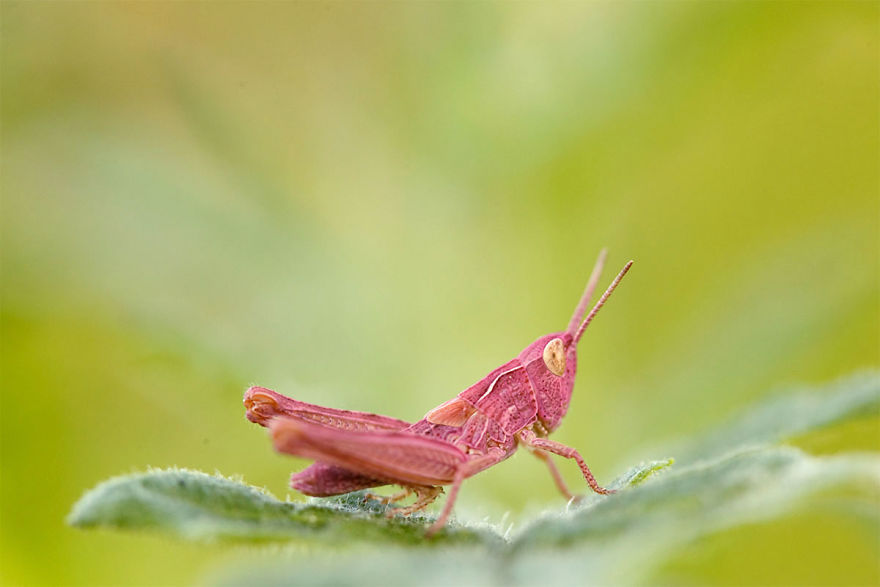
Erythrism, sometimes known as a unique reddish staining of fur, hair, skin, feathers, or eggshells, is the name given to this phenomenon. It is also believed that red hair and freckles are a sort of erythrism in humans. An albino’s skin, hair, and eyes may be fully or partially devoid of pigment, leaving them with red eyes and partially or completely white hair or fur.
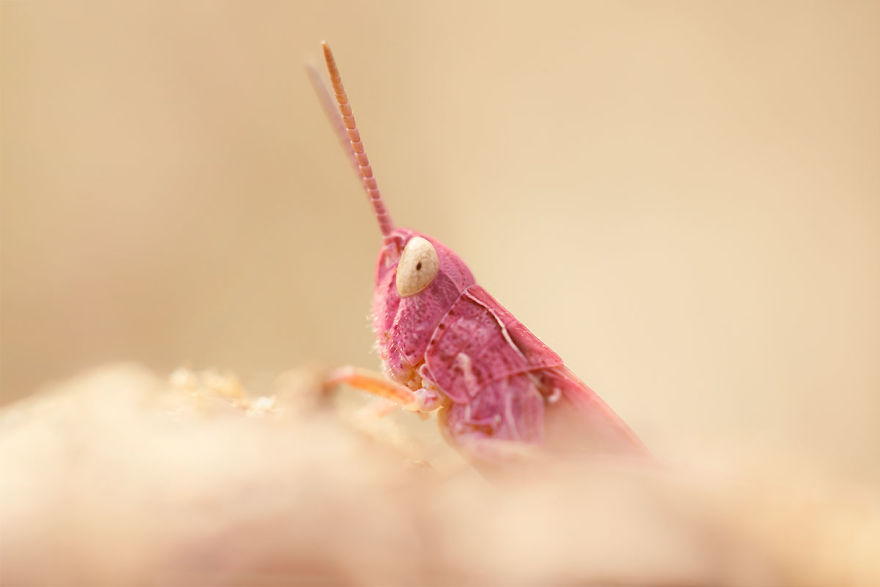
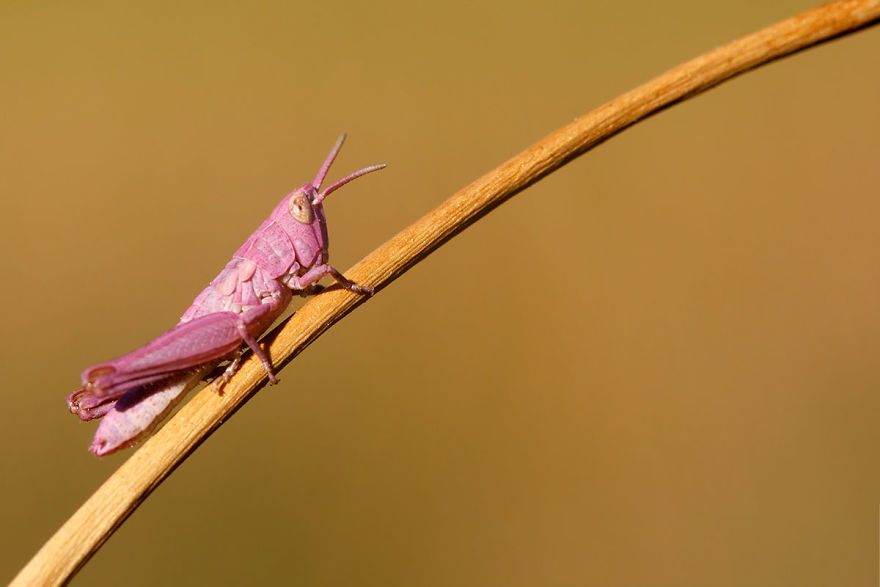
Being pink is obviously of little advantage in a largely green location. According to a different notion, the pink gene is recessive. In order to produce a pink baby grasshopper, you need two parents that carry the latent pink gene.
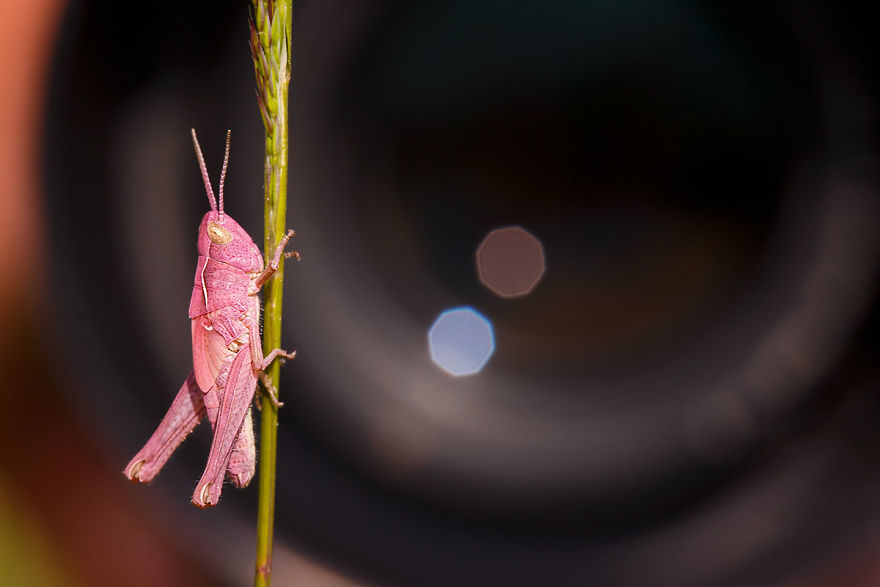
Of course, it’s conceivable that the hue pink might offer a benefit, according to certain beliefs, as in, say, a field of pink flowers. In this instance, the pink version would be superior over his green brethren, and potentially, this may lead to the emergence of a pink population! Imagine how delighted you would be if you discovered that one really uncommon pink one!





